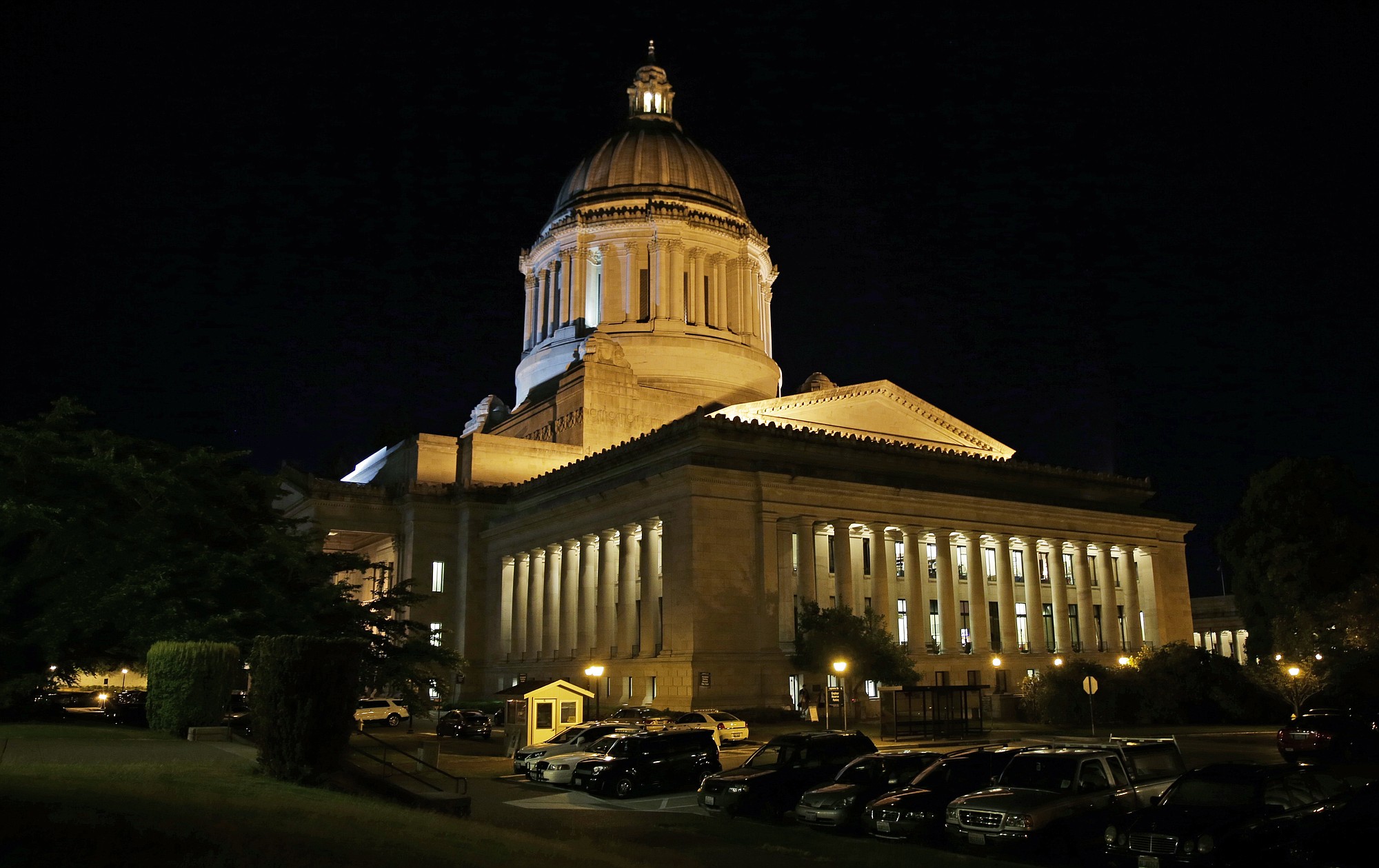SEATTLE — When lawmakers race to pass budgets and bills by working into the early morning hours, as they did Tuesday and Wednesday, advocates of open government say they are working in the dark in more ways than one.
Jason Mercier of the Washington Policy Center says unless people are inside the Capitol building in Olympia as policymakers craft last-minute changes to important legislation, they “have no idea what’s going on.”
Mercier said the frantic nature of last-minute governance means there’s no transparency, even if it doesn’t technically violate open government laws.
“It should never happen, it is not acceptable and we need to be looking at ways to make sure that it never happens again,” Mercier said Wednesday.
Gov. Jay Inslee signed a new two-year, $38.2 billion state operating budget just before midnight Tuesday, averting a government shutdown.
However state senators continued debating until after dawn Wednesday as they tried to deal with a voter-approved initiative to reduce class sizes that has been estimated to cost $2 billion if fully implemented. The House had voted to delay Initiative 1351, but the Senate lacked the votes to do so and will return to deal with the matter. The measure is key to ensuring the budget lawmakers passed on Tuesday is fully funded.
Mercier said huge policy decisions shouldn’t be made in the dead of night with the threat of a government shutdown hanging over lawmakers’ heads.
Important details for bills often aren’t available until minutes before debate or hearings happen, he said.
“Things kind of go crazy in the waning hours when there’s disagreement,” Mercier said. “You’ve got the people voting on these decisions sometimes not knowing what’s going on.”
Toby Nixon, head of the Washington Coalition for Open Government, agreed that there’s not enough scrutiny because of the frantic nature of the legislative endgame.
Nixon pointed to a measure that passed the House on Tuesday night, House Bill 2156, which would allow public agencies to charge a fee for the cost of providing public records “if the request is primarily for a commercial purpose.”
“I’m very concerned this is a slippery slope to charge for all access to public records,” said Nixon, adding he hoped the Senate would kill the bill. “These are the kind of things that happen at the last minute that are just exactly why this kind of last-minute legislating is so dangerous … nasty things slip through.”
Mercier said Washington should consider a requirement that would force the Legislature to adopt a “base budget” early in the legislative session, which would authorize continued spending near the amount of the prior year.
That system, similar to one in place in Utah, would give lawmakers time to debate spending and other matters without the continued threat of a government shutdown, Mercier said.
“Let’s look at ways to fix the problem that is forcing you to set aside public involvement and transparency,” he said.
Lawmakers themselves expressed frustration about the nocturnal negotiations.
“I would request that the leadership of both caucuses have a discussion about the hours in which we are here on the floor,” said Sen. Pam Roach, R-Auburn.
“I think it’s very fair for our health and safety, for that of ourselves as we drive home, and for our staff … there is no other body, or any kind of work that we’re doing, that would force people to work almost 24 hours.”



